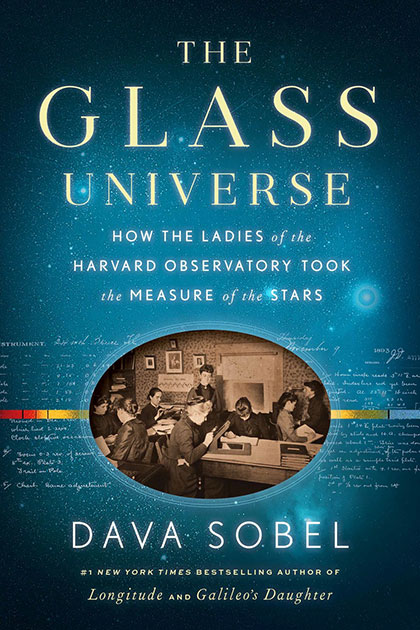
One thing I miss is browsing in my local bookstore, where I picked up this gem from 2016. I had read two books by Dava Sobel previously: A More Perfect Heaven, a play about Copernicus and his astronomical discoveries, and my all-time favourite book, Galileo’s Daughter. Students who’ve taken my grade 12 history class know how much I love Galileo – a colourful figure if ever there were one.
Continuing the sky-gazing theme, here Sobel tells the story of the women who worked at the Harvard Observatory from the mid-1800s up to the 1950s. At a time when few women could find professional places in the world of science, hundreds of women worked at Harvard cataloguing the stars via photometry – glass plate photos of the stars. And they didn’t all work in obscurity; many of them were highly notable at the time. No, they were not equals. They did not earn the same as their male peers, nor did they have as many opportunities. Yet, surprisingly, the environment for these women was relatively tolerant for the time. It was not a place of conflict or pettiness, at least according to Sobel’s telling.
That’s something, even for our own times. And thus I found the book equally calming and engaging at the same time. Sobel doesn’t make loud arguments. She paints a steady and intriguing picture through the details of the women’s lives. And astronomical observation is a very detailed field! though I read Scientific American, I admit to often skipping the articles on black holes and the like. We also subscribe to Sky News, the Canadian periodical. Usually I don’t spend much time on it. Now I feel more equipped to understand it a bit better. Hat’s off to Sobel for making the science of stellar observations seem so interesting and understandable.
Whenever I finish a book that I really enjoy, I check the author’s webpage to see if they have a “contact” section. Often I get no response. Not so with Dava Sobel. She replied to me very quickly:
Dear Risa,
Thanks so much for your thoughtful note and kindest comments about my work.
The Glass Universe was published right after the 2016 presidential election. A cousin close to me in age and temperament said the book gave her a calm place to escape to, so your remark really resonates. The people in that chapter of science history were genuinely respectful of one another. It was a pleasure to be with them over the years of research.
I so appreciate your affection for Galileo’s Daughter, which may be my favorite of the stories I’ve told. Certainly it stretched me in several directions. And I agree something of the convent spirit hovered about the observatory. Now I’m discovering it again in the Curie lab.
I’m happy for your students, as I can imagine the example you set for them..
Warm and grateful regards,
d.
Such a treat.
Reading brings such unexpected pleasures. I so look forward to Dava Sobel’s next book.